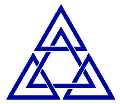

DEATH
OF THE BODY
by
B P Wadia
© 2003 Online Teosofiska Kompaniet Malmö
![]()
Wakefulness is the path of immortality, heedlessness the path of death.
Those who are awake do not die. Those who are heedless are dead already.Such are the words uttered by the Enlightened One. They are recorded in the Second Chapter of The Dhammapada.
It is one of the striking phenomena of the age that modern man, steeped in the ocean of worldly existence, fears the death of the body. Certain that death will come eventually, instead of inquiring about it, trying to understand it and prepare for it, the modern man only fears it. His education and civilization have so glamored him that he takes it for granted that no reliable instruction is available.
While he fears the death of his body and wipes it out of his reflections by a mental gesture of bravado, or runs superstitiously to priest, ritual, and propitiation, he has not asked if he is dead already. Emphasis on the body and sense-life is so powerful, the Soul has been looked upon as a myth or a vague unintelligible something for such a long time now, that the state of his Soul is not at all a matter of concern to the ordinary man. He looks upon those who are so concerned as a bit cranky and somewhat peculiar persons.
Man's pain and suffering, including the ill health of the body, should awaken any intelligent man to seek for explanations. Diseases of body or mind are taken as unrelated to Soul, to consciousness, the causal aspect of all human phenomena. Pains and suffering, aches and anguish, are treated only on the plane of effects. Superficially, and in truth unscientifically, the modern man accepts the diagnosis of his doctor, who, if he is really a great doctor, knows within his own conscience that his
ignorance overpowers his knowledge. His theories and his treatments, his present-day knowledge and the advances that it has made, certainly deserve respect. It is not wholly his fault that the patient has blind belief in the miraculous power of the doctor. But modern civilization is so founded upon soullessness that neither the patient nor the doctor bothers about the most vital factor whose functions or the lack of them cause health and disease, knowledge and ignorance, contentment and faultfinding, and the varied factors which are named advantages and disadvantages of life.Death of the body, the mind, and even the Soul contain not only clues but also infallible keys to the problem of human happiness. Who is there who does not wish for happiness? Often the means are mistaken for the end. Money is supposed to confer happiness. At another period of human evolution knowledge is supposed to contain its own reward of happiness. Still at other times, character, with courage and kindliness and contentment, is supposed to ensure happiness, in spite of poverty and ignorance. Our possessions and the power to secure and retain them are
themselves only means to happiness and they change, be they in the form of money or in the shape of knowledge.That which endures as a means to the real end of unchanging and unchangeable happiness is the Power of the Soul; both the Soul and its power are immortal. The Soul possesses the power to create and, when left to its own devices, strategy, and tactics, it sweetly and wisely ordered all things. It is attentiveness, heedfulness, wakefulness, which guards us from unconscious errors and mistakes as from conscious crimes and sins. Rightly, therefore, Gautama and His Illustrious Predecessors emphasized
this faculty of Chitta-mind consciousness as all-important.Sanat Kumar imparts the same teaching to Dhritarashtra. In Chapter Two of Sanatsujatiya, we find the great Sage answering the King's inquiry -- "Which is correct -- that death exists not or that freedom from death can be obtained by Brahmacharya?"
Here is the reply:-
"Some say, that freedom from death results from action; and others that death exists not. Hear me explain this, O King! Have no misgiving about it. Both truths, O Kshatriya, have been current from the beginning. The wise maintain that what is called delusion is death. I verily call heedlessness death, and likewise I call freedom from heedlessness immortality. Through heedlessness, verily, were the demons vanquished. Through freedom from heedlessness, the gods attained to the Brahman. Death, verily, does not devour living creatures like a tiger; for, indeed, his form is not to be perceived."B. P. WADIA
From "Thus have I heard", pages 277-279. Utgiven av Indian Institute of World Culture, 1959.
_______________________________________________________________________________________________________
| till toppen av sidan | till B P Wadia Online huvudindex | till ULTs hemsida |
Copyright © 1998-2014 Stiftelsen Teosofiska Kompaniet Malmö
Uppdaterad 2014-03-23